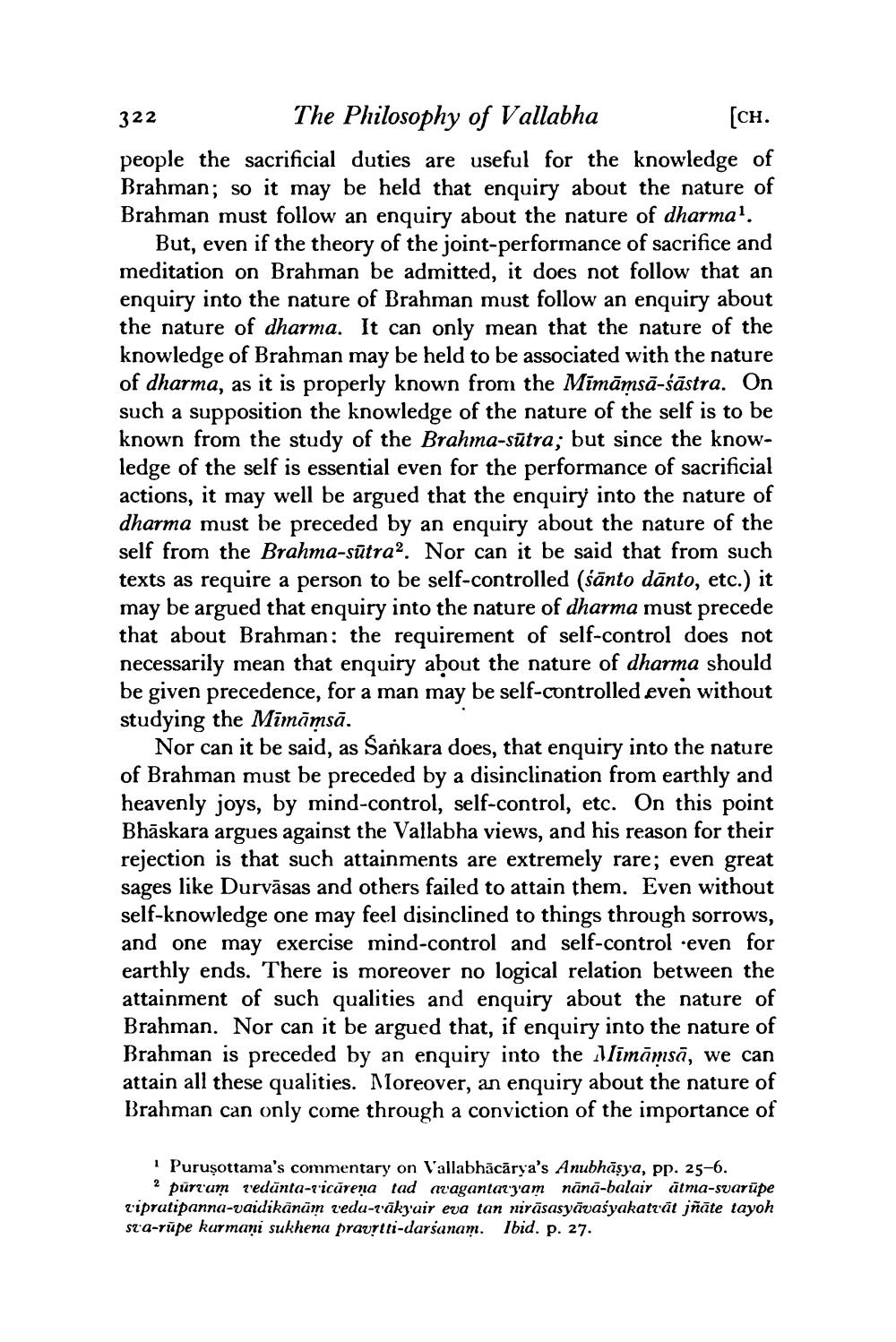________________
322 The Philosophy of Vallabha
[CH. people the sacrificial duties are useful for the knowledge of Brahman; so it may be held that enquiry about the nature of Brahman must follow an enquiry about the nature of dharma'.
But, even if the theory of the joint-performance of sacrifice and meditation on Brahman be admitted, it does not follow that an enquiry into the nature of Brahman must follow an enquiry about the nature of dharma. It can only mean that the nature of the knowledge of Brahman may be held to be associated with the nature of dharma, as it is properly known from the Mimāmsā-śāstra. On such a supposition the knowledge of the nature of the self is to be known from the study of the Brahma-sūtra; but since the knowledge of the self is essential even for the performance of sacrificial actions, it may well be argued that the enquiry into the nature of dharma must be preceded by an enquiry about the nature of the self from the Brahma-sūtra2. Nor can it be said that from such texts as require a person to be self-controlled (śānto dānto, etc.) it may be argued that enquiry into the nature of dharma must precede that about Brahman: the requirement of self-control does not necessarily mean that enquiry about the nature of dharma should be given precedence, for a man may be self-controlled even without studying the Mimāmsā.
Nor can it be said, as Sankara does, that enquiry into the nature of Brahman must be preceded by a disinclination from earthly and heavenly joys, by mind-control, self-control, etc. On this point Bhāskara argues against the Vallabha views, and his reason for their rejection is that such attainments are extremely rare; even great sages like Durvāsas and others failed to attain them. Even without self-knowledge one may feel disinclined to things through sorrows, and one may exercise mind-control and self-control .even for earthly ends. There is moreover no logical relation between the attainment of such qualities and enquiry about the nature of Brahman. Nor can it be argued that, if enquiry into the nature of Brahman is preceded by an enquiry into the llimāmsā, we can attain all these qualities. Moreover, an enquiry about the nature of Brahman can only come through a conviction of the importance of
Purusottama's commentary on Vallabhācārya's Anubhāsya, pp. 25-6.
? purtum tedānta-Ticarena tad avagantaryam nānā-balair atma-svarūpe ripratipanna-vaidikānām veda-r'ākyair eva tan nirāsasyāvasyakatrāt jñāte tayoh sta-rūpe kurmani sukhena pravrtti-darsanam. Ibid. p. 27.




